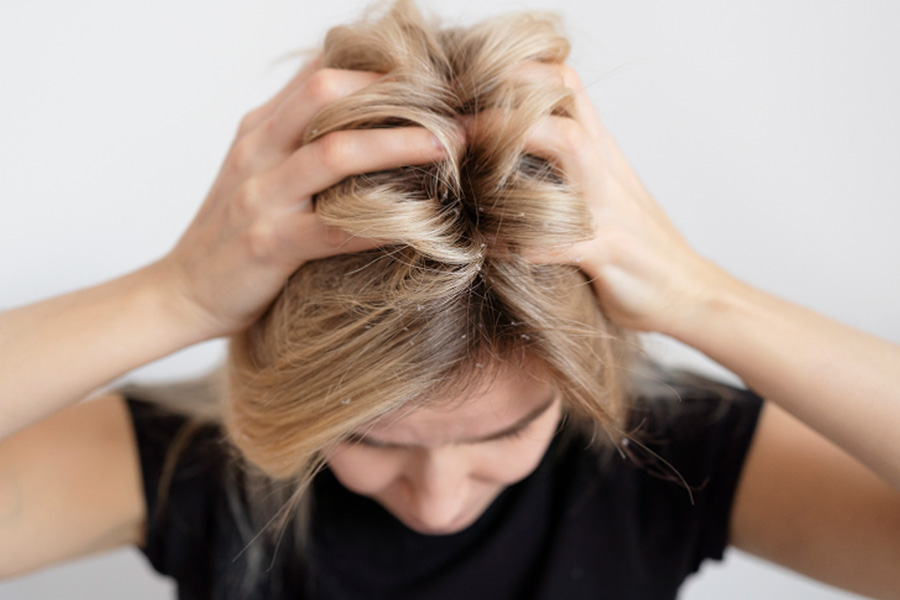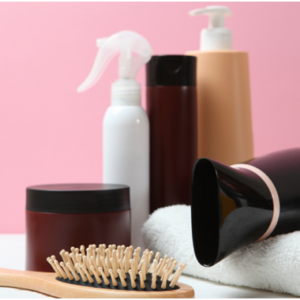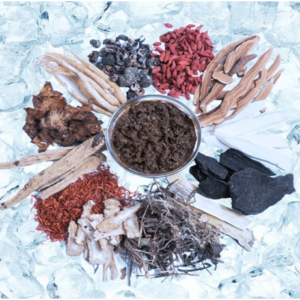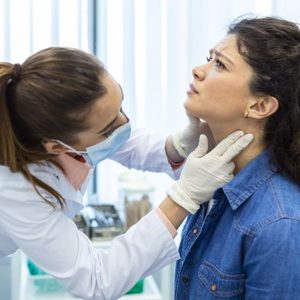How Stress Can Trigger Both an Itchy Scalp and Hair Loss

Stress affects the body in many ways, but people often overlook its impact on the scalp and hair. People under stress may experience scalp discomfort, increased oil production, or persistent itchiness. Over time, these symptoms can worsen and contribute to hair loss. This guide explains the connection between stress, an itchy scalp, and how this condition may lead to visible hair thinning.
How Stress Affects the Scalp Environment
Stress triggers changes in hormone levels, particularly an increase in cortisol. This shift affects the skin’s barrier function, including the scalp, which becomes more sensitive and reactive. Individuals under chronic stress may notice that their scalp feels tight, itchy, or inflamed, even without external irritants. These symptoms can lead to excessive scratching, damaging the skin’s protective barrier.
Increased cortisol levels also influence the production of sebum, the natural oil of the scalp. For some, this results in an oily scalp, while others experience dryness and flaking. Both conditions can cause irritation and itching. When left unmanaged, scalp inflammation caused by stress can create a breeding ground for secondary problems such as seborrhoeic dermatitis or folliculitis, worsening discomfort and contributing to hair loss and itchy scalp symptoms.
Stress and the Hair Growth Cycle
Hair grows in a cycle that includes phases of growth (anagen), transition (catagen), and resting (telogen). Stress can disrupt this cycle by pushing more hair follicles into the telogen phase, where hair is more likely to fall out. This condition, known as telogen effluvium, often occurs two to three months after a stressful event. Individuals may notice a sudden increase in hair shedding during washing or brushing.
This hair fall, paired with scalp itchiness, may be misinterpreted as a result of product use or hygiene habits. In reality, the trigger often lies in internal stress-related changes. When people scratch their scalp due to irritation, it can also weaken the hair follicles, compounding the issue. The result is a cycle where stress causes both itchy scalp symptoms and hair loss, which worsen each other.
Common Symptoms to Watch For
There are several warning signs to hair loss and itchy scalp issues to look out for. These include persistent scalp itching without a clear external cause, increased hair fall with white bulbs at the ends, or patches of thinning hair. In some cases, you might also see flakes or redness on the scalp. These symptoms can appear gradually or suddenly, depending on the nature and duration of the stress exposure.
It’s also common for people experiencing these symptoms to feel self-conscious, which further increases stress and worsens the condition. Recognising the signs early helps prevent further damage. Tracking how symptoms change over time, especially in relation to major life events or emotional changes, may offer insights into stress-related triggers.
How to Manage Stress-Related Scalp and Hair Issues
Managing this condition requires a combination of stress reduction and scalp care. Simple lifestyle changes such as getting enough sleep, exercising regularly, and limiting caffeine or alcohol intake can help reduce cortisol levels. Practising relaxation techniques such as deep breathing or mindfulness may also ease symptoms.
Topical treatments and herbal hair treatments, such as gentle shampoos formulated for sensitive or itchy scalps, can reduce inflammation and irritation. Avoid harsh ingredients like sulphates or fragrances that might worsen the problem. In some cases, dermatologists recommend medicated shampoos or topical corticosteroids. Addressing both internal and external factors provides the most effective solution for controlling hair loss and itchy scalp issues.
When to Seek Professional Help
Persistent or worsening symptoms should prompt a visit to a medical professional. If you notice bald patches, excessive flaking, or itchiness that disrupts daily activities or sleep, it’s time to consult a dermatologist or trichologist. These experts can assess whether stress is the root cause or if an underlying scalp condition requires treatment.
Delaying medical advice can lead to complications, including permanent hair thinning or chronic scalp inflammation. A professional can also help rule out nutritional deficiencies, hormonal imbalances, or autoimmune conditions. Seeking help early gives you a better chance of reversing symptoms and maintaining both scalp and hair health.
Conclusion
Stress affects the scalp and hair more than many people realise. It increases sensitivity, triggers inflammation, and disrupts the natural hair growth cycle, which can result in both an itchy scalp and excessive hair loss. Recognising these effects early and taking steps to manage stress and scalp health can prevent long-term damage.
Take charge of your scalp and hair health. Contact Bee Choo Origin today for expert advice and personalised solutions.









